Local SEO strategy is crucial for businesses, particularly those with physical locations or those serving specific geographical areas. By aligning your online presence with your potential customers’ local searches, you significantly increase the chances of your business being noticed.
Whether you’re a retail store, a service provider, or a professional entity, mastering local SEO can lead to unmatched benefits in terms of online and offline traffic.
What Is Local SEO?
Local SEO (Search Engine Optimization) refers to the practice of optimizing your online presence to attract more business from relevant local searches. These searches take place on Google and other search engines. This strategy is especially beneficial for businesses that have a physical location or serve a specific geographic area.
The goal of Local SEO is to increase your business’s visibility in local search results. Local SEO is crucial because it allows local businesses to promote their services to local customers at the exact time they’re looking for them online. This is done through a variety of methods, some of which differ significantly from what is practiced in standard SEO.
Understanding Your Target Audience
A deep understanding of your target audience is the foundation of any successful marketing strategy, especially local SEO.
Local customers have unique needs, preferences, and search behaviors. Tailoring your approach to meet these specific characteristics can significantly improve your visibility and attractiveness to your local market.
Identifying Local Search Trends
Start by identifying what your local customers are searching for. This involves understanding the services or products you offer and the local context in which these offerings are sought.
For instance, a restaurant in San Francisco might find that local customers frequently search for “best sourdough in San Francisco” or “cozy cafes near Golden Gate Park.”
Utilizing tools like Google’s Keyword Planner, Moz Local, or SEMrush can provide insights into local search trends and your potential customers’ keywords. Incorporating these keywords into your website’s content, meta descriptions, and blog posts can enhance your visibility in local search results.
Speaking Your Audience’s Language
To truly connect with your local community, speaking your audience’s language and incorporating local vernacular, cultural nuances, and the colloquialisms unique to your area into your content is crucial.
This means listening closely to how your audience communicates—whether through social media, customer feedback, or local forums—to adapt your messaging to reflect the local culture and values.
By using local references and stories and optimizing for conversational search queries, you improve your SEO and forge a deeper connection with your audience. This approach goes beyond keywords, embedding your business into the fabric of the community and demonstrating respect and understanding for its cultural norms and expressions.
Utilizing Local Customer Reviews
Local customer reviews are a goldmine of information. They can provide insights into what customers appreciate about your service or product and what terms they use to describe their experience.
Mobile Optimization
With the increasing prevalence of smartphone use for local searches, ensuring your website is mobile-friendly is non-negotiable.
A site that loads quickly and displays well on mobile devices can significantly enhance the user experience, making it easier for potential customers to find and engage with your business.
Optimizing Your Website for Local SEO
A well-optimized website is the cornerstone of your online presence. This means being visible online and to the correct local audience for local businesses.
Here are essential strategies to ensure your website is fully optimized for local SEO:
Incorporate Local Keywords
Identify and use local keywords throughout your website. These include your services or products and regional identifiers, such as city names or local landmarks.
For instance, “vintage clothing store in East Village” is more targeted than just “vintage clothing store.” These keywords should be naturally integrated into your titles, meta descriptions, headers, and body content.
NAP Consistency
Ensure your business Name, Address, and Phone Number (NAP) are consistently listed across your website. This information should be easily accessible, ideally in the footer of every page and on a dedicated contact page.
Consistency is key: the NAP on your website should match exactly with that on your Google My Business profile and other online listings.
Create Locally Relevant Content
Develop content that speaks to local interests and concerns. This could be blog posts about local events, guides to the neighborhood, or case studies from local clients. Such content improves your SEO and establishes your business as an integral part of the local community.
Use Schema Markup
Schema markup is a code you can add to your website to help search engines return more informative results for users.
Regarding local SEO, schema markup can highlight your business’s local information, such as your NAP details, operating hours, and events. This can significantly enhance your visibility in local search results.
Optimize for Local Voice Search
Voice search is increasingly popular for local queries. Ensure your content accommodates conversational, long-tail search queries like “Where can I find a vegan bakery near me?” This involves optimizing for natural language and question-based searches.
Secure and Fast Loading Website
A secure (HTTPS) and fast-loading website provides a better user experience and is favored by search engines. Use tools like Google’s PageSpeed Insights to analyze and improve your site’s loading speed.
Leveraging Local Listings and Reviews
Local listings and online reviews are invaluable for businesses aiming to boost their local SEO performance. They improve your visibility in local search results and build trust and credibility with potential customers.
Claiming and Optimizing Local Listings
- Google My Business (GMB): The cornerstone of local SEO, GMB allows you to manage how your business appears on Google Maps and search results. Ensure your listing is claimed, accurate, and fully optimized, including business categories, descriptions, and photos. Regular updates and posts can also improve your visibility and engagement.
- Other Local Directories: Besides GMB, list your business on relevant local and industry-specific directories such as Yelp, Bing Places, and TripAdvisor. Consistency is key—ensure your NAP details match across all platforms.
Managing and Responding to Reviews
- Encourage Reviews: Actively encourage your customers to leave reviews by creating simple processes and reminding them post-purchase or service. Reviews influence potential customers and contribute to your local SEO rankings.
- Respond to Reviews: Engage with reviews by responding promptly and professionally, regardless of whether they are positive or negative. This demonstrates that you value customer feedback and helps you manage your online reputation.
Utilizing Local Reviews in Your Marketing
- Showcase Reviews: Highlight positive reviews on your website and marketing materials. Testimonials can significantly influence potential customers’ perceptions and decisions.
- Leverage Social Proof: Use reviews as social proof in your marketing campaigns. Positive feedback from local customers can be a powerful tool in attracting more business.
Monitoring Your Online Reputation
- Online Reputation Management Tools: Utilize tools like Google Alerts, ReviewTrackers, or Moz Local to monitor mentions of your business online. This can help you stay on top of your online reputation and address any issues promptly.
Content Marketing with a Local Focus
Content marketing for local SEO involves crafting content that’s valuable and engaging, and tailored to the local community you serve. This approach can significantly enhance your online visibility and establish your business as a local authority.
Understanding Local Interests
- Research Local Topics: Start by understanding what matters to your local community. This could include local news, events, or issues. Tools like Google Trends can help identify popular topics in your area.
- Engage with Your Community: Social media platforms, local forums, and community events are excellent ways to gauge the interests of your local audience. Participation in these forums provides content ideas and boosts your local presence.
Creating Locally Relevant Content
- Blog Posts: Write blog posts that answer local queries, feature local events, or spotlight local customers. For instance, a restaurant could post about participating in a local food festival, including photos, menus, and customer experiences.
- Local Guides: Create helpful guides or lists for your local audience. A real estate company, for example, might produce a guide to the best schools in the area.
- User-Generated Content: Encourage local customers to contribute content. This could be through contests, customer stories, or features on local personalities. User-generated content is highly engaging and adds a personal touch to your brand.
Local Keywords in Content
Incorporate local keywords naturally into your content. This includes geographical names, local landmarks, and community-specific phrases.
These keywords should fit into your content, improving its relevance to local search queries without sacrificing readability.
- Keyword Variations: Incorporate variations of local keywords, including abbreviations and colloquial terms. For instance, NYC is for New York City, and ‘The Windy City’ is for Chicago. This variation can capture a broader range of search queries.
- Geo-specific Landing Pages: Creating geo-specific landing pages for businesses operating in multiple locations can significantly impact local search visibility. Each page should be tailored with local keywords, unique content, and specific details about that location.
- Contextual Use of Keywords: Integrate local keywords contextually within valuable content. For example, if you’re a local bakery, instead of merely saying “best bakery in [Location],” share a story about how your bakery sources ingredients from local farms in [Location], connecting local keywords with engaging, relevant content.
Promoting Local Content
- Social Media: Share your content on social media platforms, tag local accounts, and use local hashtags to increase reach.
- Email Newsletters: Include your local content in email newsletters to subscribers, highlighting community involvement and local insights.
- Local Press and Blogs: Contact local newspapers, magazines, and bloggers for potential features or guest posting opportunities. This can significantly extend your content’s reach within the local community.
Monitoring and Adjusting
Monitor the performance of your local content regularly. Tools like Google Analytics can provide insights into what’s resonating with your audience. Use this data to refine your strategy, focusing on topics and formats that generate the most engagement.
Charting Your Local Success with Index365
From the meticulous integration of local keywords in your content to the strategic crafting of locally focused marketing materials and the proactive management of your local listings and reviews, each step is pivotal in weaving the fabric of your online presence within the community.
This is where Index365 steps in. As your trusted partner in digital marketing and local SEO, we’re here to navigate the complexities of local optimization, ensuring that your business achieves and exceeds its online visibility goals. Our expertise in crafting bespoke local SEO strategies that speak directly to your community’s heart sets us apart.
Are you ready to elevate your local presence and connect meaningfully with your community? Index365 is your gateway to harnessing the full potential of digital marketing and local SEO. Contact us today, and let’s chart your path to local success together.






